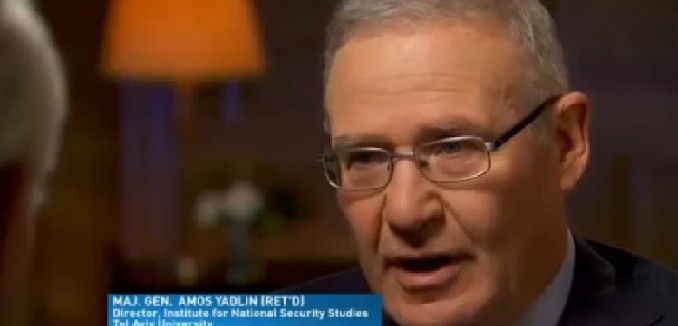Iran has already crossed Israel’s nuclear red line, the former head of Israeli military intelligence said Tuesday.
“By the summer, Iran will be a month or two away from a decision about the bomb,” said Maj. Gen. (res.) Amos Yadlin, now the director of the Institute of National Security Studies, at the think tank’s annual conference at Tel Aviv University. He said a final decision about pursuing a bomb would be made after Iran’s presidential elections in June.
Yadlin said he is convinced Israel has the capacity to conduct a military strike against the Islamic Republic if necessary. As a young air force pilot, Yadlin was personally involved in the 1982 bombing of Saddam Hussein’s Osirak nuclear reactor in Iraq.
“We believe Israel can handle a strike on Iran by itself,” he said. “We can also deal with the fallout from a strike – it won’t be World War III. But Israel will need the U.S. in the decade or so afterwards,” he said without elaborating.
“I give the U.S. administration high marks on efforts to stop Iran,” Yadlin added, but, “the international community has shown it’s more interested in stopping an Israeli strike than stopping an Iranian bomb.”
According to Yadlin, Tehran already has enough 3.5 percent enriched uranium for six bombs and nearly enough 20% enriched uranium for one bomb. “They have no problem reverting back what they allegedly turned to nuclear fuel. Within a week it could be turned into nuclear material for a bomb,” he warned.
In a speech at the United Nations in September, Prime Minister Benjamin Netanyahu laid out a “red line” for Tehran, which he later clarified meant Iran must not enrich 240 kilograms to the 20-percent point – enough to make a single bomb. Earlier this month the Wall Street Journal reported that Iran’s Supreme Leader Ali Khamenei had decided to keep Iran’s enrichment below that level for now, at least until elections.
Meanwhile, on Tuesday Iranian U.N. envoy Ali Asghar Soltanieh said his country could be a “reliable partner” in the Middle East if the West adopts a more positive attitude in its nuclear talks.
Reuters reports:
“Western countries are advised to change gear from confrontation to cooperation, the window of opportunity to enter into negotiation for long-term strategic cooperation with Iran, the most reliable, strong and stable partner in the region, is still open,” Soltanieh told a meeting in Geneva on the nuclear Non-Proliferation Treaty (NPT)…
Thomas Countryman, chief U.S. delegate to the NPT talks, said on Monday that Iran’s nuclear program poses the greatest threat to the credibility of the NPT, which aims to halt the spread of nuclear weapons.
“Hostile policies of Western countries, including dual track, carrot and stick, sanctions-and-talks policies are doomed to failure,” [Soltanieh] said.
Below is an excerpt from Yadlin’s remarks on Tuesday (Hebrew only).
[Photo: INSS Israel / YouTube]




